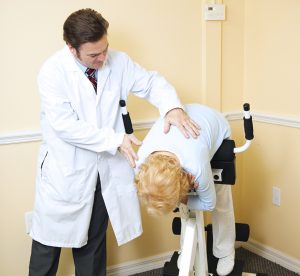Back Pain
Back pain is one of those hidden injuries that can range anywhere from mild discomfort to debilitating pain.
One of the most difficult things about managing back pain is knowing the difference between common ailments that can be treated with non-invasive methods, and serious back issues that require surgery.
So how can you figure out if you need to see a’spine surgeon?

While surgeons often have differing opinions on what requires spinal surgery and what doesn’t, a general rule of thumb is simply if non-invasive methods don’t do the trick, spinal surgery is maybe the best option to give you some relief. Take a look below for things to try to relief your back pain before considering serious back surgery.
Non-invasive treatments for back pain


If the back pain does not subside, some patients find a more intensive approach, such as spinal injections or physical therapy, are useful to get back problems under control and keep them from coming back worse than before.
One can also consider acupuncture and chiropractic care.
In most cases, spinal surgery becomes an option for patients when less invasive treatments have not worked.
Conservative treatments can usually take care of minor injuries, but for certain back problems, including herniated disks and genetic conditions, spinal surgery is a necessity.
Below are some common reasons that patients may need a back surgeon:
Compressed nerves
Symptoms for compressed nerves usually include pain or numbness in one or more legs or arms. Failure to find relief for compressed nerves is a typical reason for meeting with a back surgeon. There are two common causes of this condition.
Slipped or ruptured disk: Occurs when disks are pressed too tightly against a spinal nerve.
Bone spurs: This excess bone makes it difficult for nerves to pass through openings along the spine.
Stenosis
This is a degenerative spinal condition where the protective bony canal around the spinal cord is narrowed. Symptoms may include weakness or numbness in legs and arms, neck pain, back pain and cramping in one or both legs.
Speak with a spine surgeon in Portland, Oregon
Spinal surgery is ultimately a decision between you and your surgeon. Dr. Todd Kuether is a neurosurgeon in Portland, Oregon at Kuether Brain and Spine — he works with patients who require brain surgery or spinal surgery. His expertise includes endovascular aneurysm and stroke treatment.









